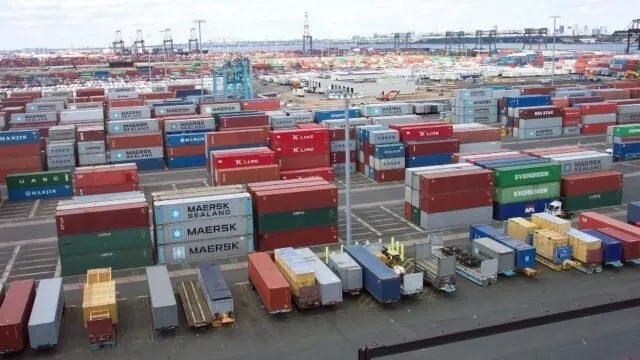The Federal Government on Friday restated its commitment to improving the trade environment to boost domestic production and exports.
President Muhammadu Buhari, said this at the 36th edition of the Lagos International Trade Fair (LITF) organised by the Lagos Chamber of Commerce and Industry (LCCI).
The president, represented by the minister, Industry, Trade and Investment, Otunba Niyi Adebayo, said the government would continue to support all initiatives to encourage domestic production and exports.
He said the federal government spent N785 billion to improve the trade environment between 2019 and 2022 through the Central Bank of Nigeria (CBN) and the Bank of Industry (BoI).
“We all know the important role trade plays in stimulating our economy and driving sustainable development.
“Through increased trade, our goals of job creation, Gross Domestic Product (GDP) growth, increased foreign exchange earnings and reduced insecurity are actualised.
“The development of export trade takes this a step further and helps our nation reach its economic diversification goals,” he said.
Buhari described the country’s ratification of the African Continental Free Trade Area (AfCFTA) as a great opportunity, seeing that the country’s international trade recorded a surplus of N3.2 trillion between Jan and June.
He, however, stressed that for the country to do better economically, the public and private sectors must work together.
This, he explained, was because of the capacity of the private sector to help boost the demand for Nigerian products by aggressively pursuing value addition and increasing the quality of exported goods.
“This trade fair is a great opportunity to showcase Nigeria’s capacity to produce to international standards and also to export.
“The public sector will continue to drive investment into infrastructure development, encourage access to low-cost financing and provide fiscal incentives to companies wishing to manufacture products for sale.
“The Federal Ministry of Industry, Trade and Investment is reviewing and updating our National Trade Policy in order to firmly establish Nigeria as a worldwide trading hub and a regional leader,” he said.
According to him, the policy will aim to maximise the country’s economic output, expand infrastructural development, promote business growth, industrialisation and entrepreneurship.
“While we take these strides, it is important that all national policy makers, business leaders and trade development partners know that the synergy and cooperation between all parties is cardinal to enhancing trade in Nigeria.
“Through effective partnerships, governance and help from our friends in the private sector, the sky is the limit,” he said.
In his remarks, Dr Michael Olawale-Cole, president, LCCI, said the trade fair’s theme underscored the importance of relationships and networking among businesses for the purpose of wealth creation.
Olawale-Cole said global economic conditions were challenged even after recovering from COVID-19 pandemic and the ongoing Russia-Ukraine war, and recently climate change shocks in the form of devastating floods across the country.
He noted that while the Nigerian economy recorded some impressive growth figures this year, there were heightening fears of recession, food insecurity and more climate change impacts.
The LCCI president stressed the need for investors to continue to demonstrate resilience and determination to forge ahead in spite of these challenges.
“As a chamber, we have strong confidence in the Nigerian economy, and we believe we would meet our growth target for this year.
“The LCCI’s trade fairs, specialised exhibitions, and several business events are some of the many ways we support trade and commerce in the economy.
“We recognise the imperative of non-oil sector development and the need to add value to our primary products in order to improve earnings for both the public and private sectors of the Nigerian economy.
“This trade fair provides a platform to identify non-oil alternatives and highlights the significance of value addition even as it serves as an avenue to boost economic and commercial activities,” he said.




